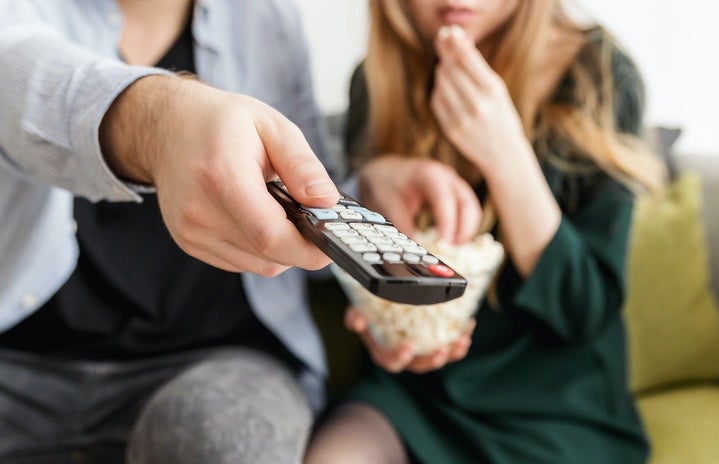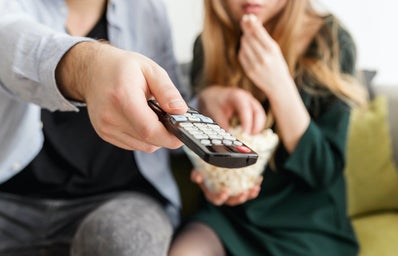The latest season of “Big Brother” wrapped up last Wednesday, October 28, with houseguest Cody Califiore being the winner. The competition reality show has been broadcasted for 22 seasons over the course of the past 20 years, with the addition of two special “celebrity” seasons.
If you’ve never seen “Big Brother,” the concept is pretty simple to understand. A number of “houseguests,” or contestants, are thrown into a house, completely isolated from the rest of the world, where they are monitored constantly. The houseguests go head-to-head in various competitions throughout the season to avoid being evicted and the last one standing wins a grand prize of $500,000. Fans can pay to view 24/7 live-feeds to see the houseguests in real time, getting to see things that the editors are unable to fit into their television broadcasts. While the reality show has received a lot of praise from viewers around the world, it has also rightfully been the subject of criticism for enabling ableism and racism from its contestants.
This past season, which featured “All-Stars” who had played during previous seasons, had multiple controversial moments that had both fans and players talking. Multiple contestants, including Nicole Franzel and Memphis Garrett, made fun of a fellow contestant, Ian Terry, because of his autism.
Terry would often rock back and forth on a chair or hammock to help himself feel at ease, an action that is seen as a soothing mechanism for those who are on the autism spectrum. Garrett mocked Terry’s movements, calling them “weird” and even saying that he wanted to “kick him in his teeth [and say it was] an accident.” Franzel even went as far as saying that Terry’s autism was “great strategy.”
Some contestants that had already been evicted from the house expressed their disgust at the behavior they were watching, including Kaysar Ridha who tweeted, “Ppl who are neurodiverse & on the spectrum should be protected not trashed. I have zero tolerance on this issue.” No producers stepped in during this occurrence to condemn the behavior and make it stop.
Another instance occurred during a conversation that Garrett was having with Calafiore. Many fans viewing the live feeds believed that they heard Garrett call a Black contestant, David Alexander, the n-word. CBS issued a statement on the issue, saying “producers have listened to the scene using enhanced audio. Additionally, [they] isolated and played back the scene several different ways using professional, studio-grade audio equipment. After close examination, it has been determined a racial epithet was not said or uttered.” They also wrote, “Hate speech will not be tolerated, and those who violate the policy will be removed from the Big Brother House,” but it’s hard to tell if they will hold themselves to this standard as they haven’t seemed to care much in the past.
Racism isn’t anything new to “Big Brother”. During season 21, houseguest Jack Matthews and winner Jackson Michie were criticized numerous times for exhibiting problematic behavior. Matthews expressed that he wanted to “stomp a mud hole” through Kemi Fakunle’s chest. Fakunle was the only Black woman on the season. He also referred to an Asian American contestant, Isabella Wang, as “rice pudding.”
A similar remark was made back in season 15, a season full of controversies, when GinaMarie Zimmerman said that Helen Kim “should be kissing [their] ass and serving us some rice.” Going back to season 21, Michie was called racist by fans for putting three BIPOC on the chopping block on the first day of the season.
So where does this issue begin? The problem is clearly rooted in the production and casting of the show. Kemi Fakunle told other houseguests that she was encouraged by a producer to “wag [her] finger and be like, Uh uh girlfriend,” even though that was not how she acted in real life. The producers try their hardest to protect their white cast members, not airing any of the hateful comments they make towards other contestants and allowing the audience to continue to believe they are good people if they do not keep up with the live feeds. Those in charge of casting also seem to only choose two or three token BIPOC each season to appease viewers, and those contestants always seem to be eliminated early on.

These are just a few of the incidents that have occurred out of many since the show premiered back in 2000. CBS needs to take a step back and reevaluate their priorities in order to ensure that “Big Brother” is the best that it can be and does not continue to be platform for contestants to share their hateful opinions. Many have called for showrunner Allison Grodner to step down as she has been the one allowing microaggressions to occur to contestants in the house.
The network has recently stated that during the 2021-22 season, Big Brother, along with other reality shows Survivor and Love Island, will have a cast that is at least half BIPOC. George Cheeks, the President of the network, wrote “The reality TV genre is an area that’s especially underrepresented, and needs to be more inclusive across development, casting, production and all phases of storytelling,” It will be crucial for them to not only follow through with this promise, but also work harder to protect their BIPOC and disabled cast members moving forward in order to gain many fans’ respect back.



